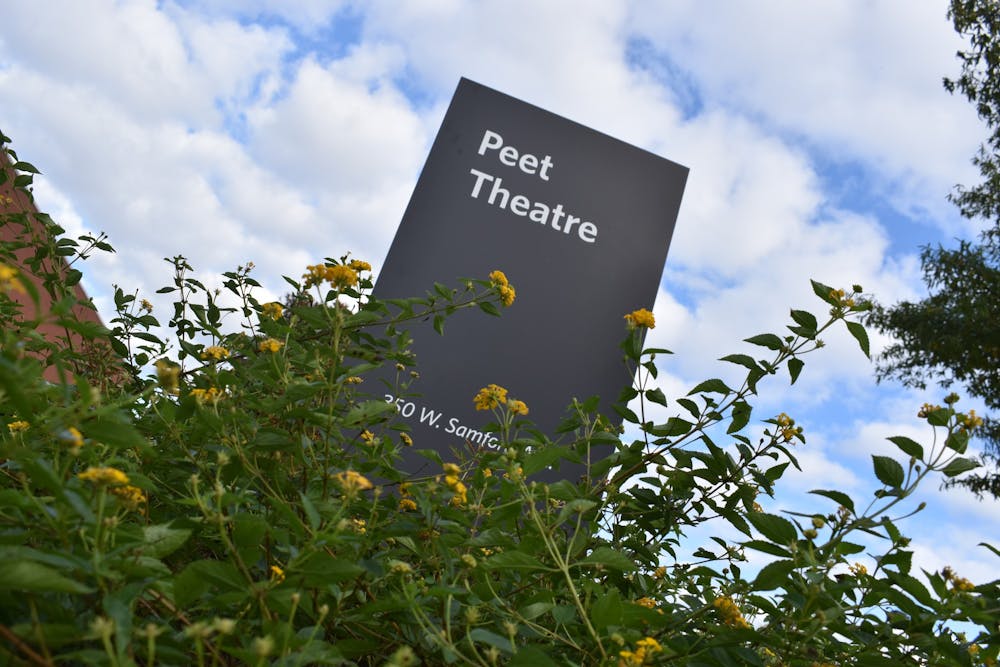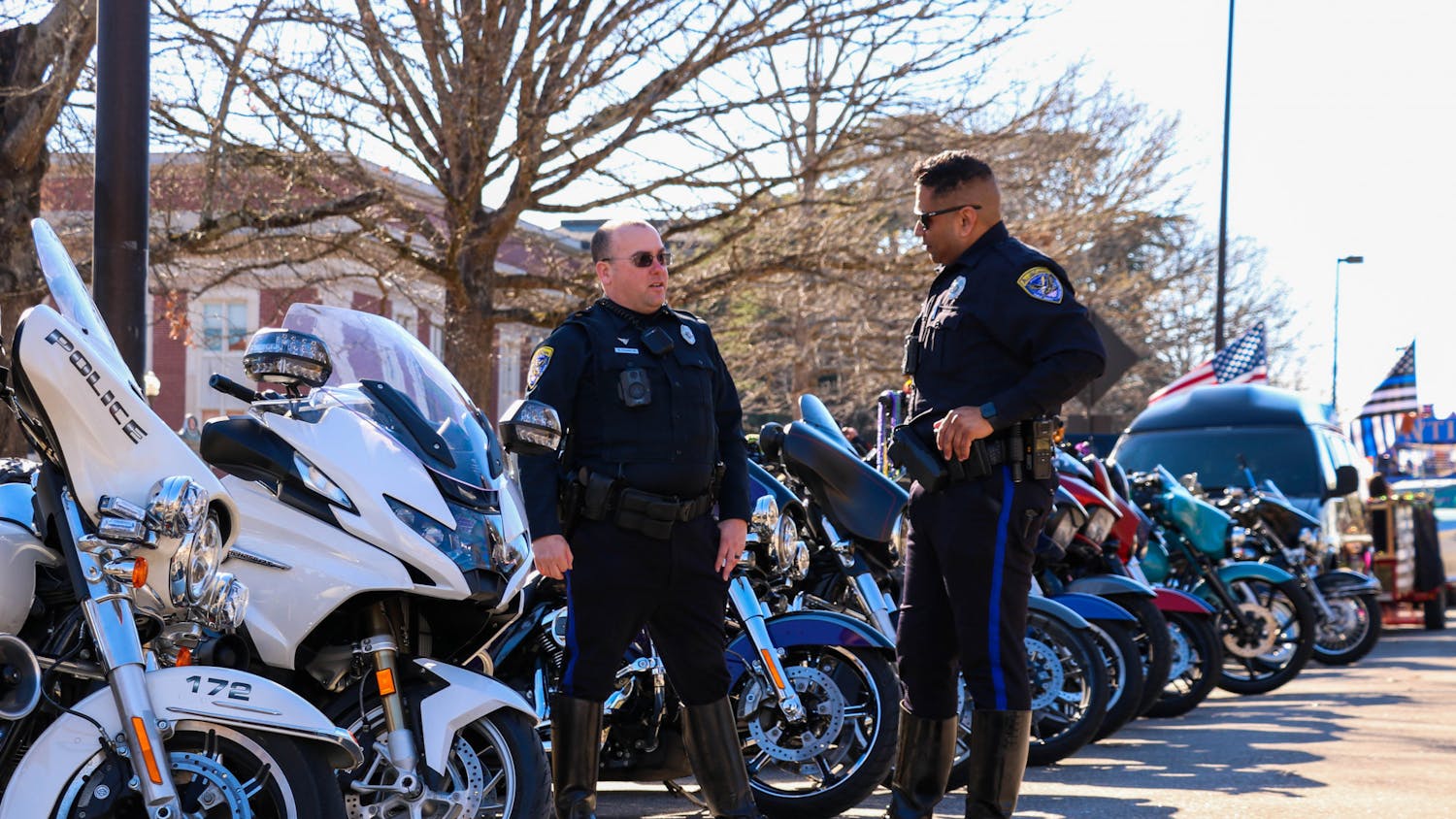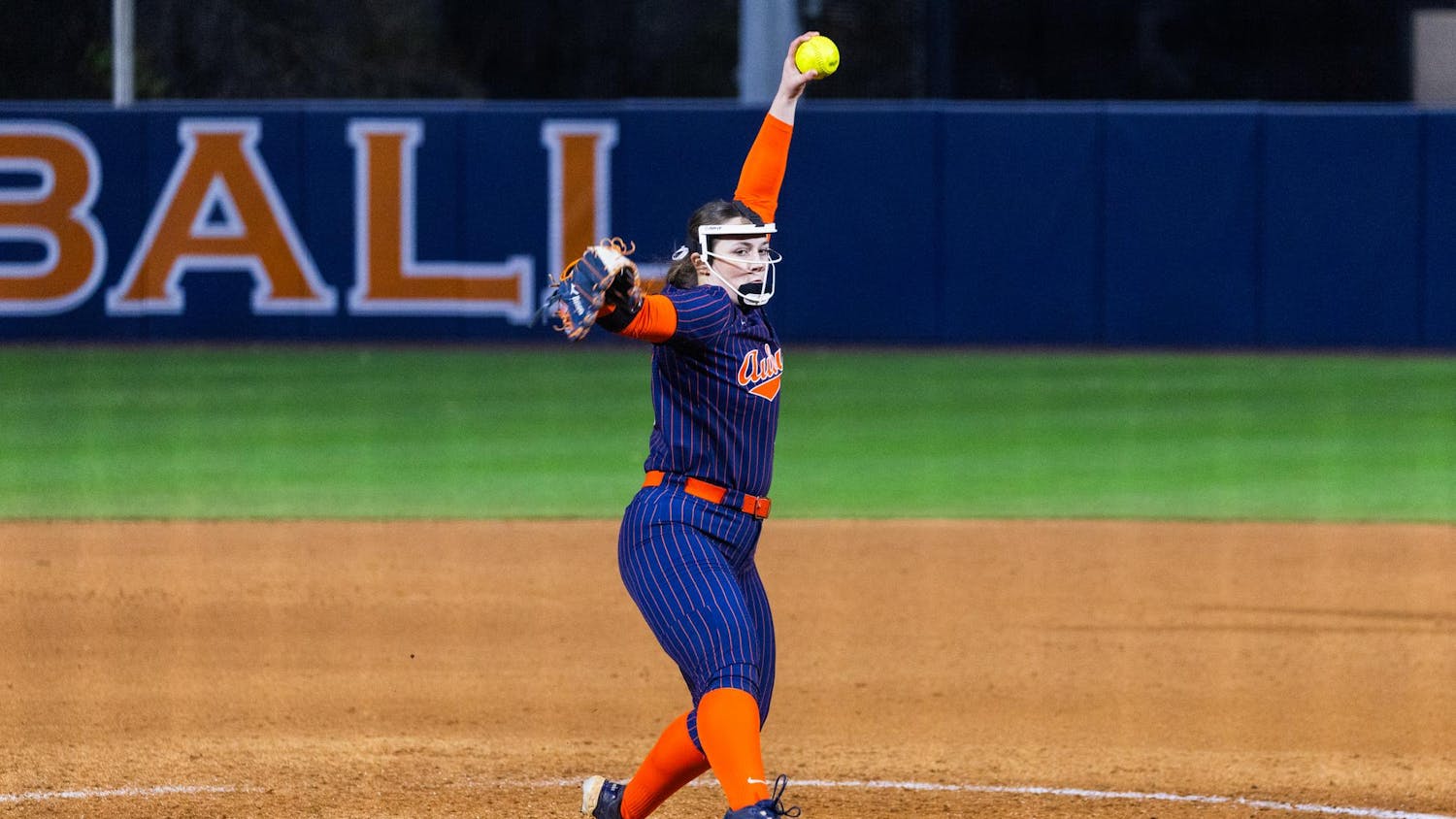As the seasons change, the many patches of blue and orange flowers sprinkled around Auburn begin to fade. The flower, accompanied by “Wildflowers at Work” signs, are part of the public works department’s wildflower program.
According to Auburn Public Works Department landscape and sustainability division manager Daniel Ballard, the department began the wildflower project to support local pollinators and counteract invasive species. The wildflower program was established this year and partners with the Auburn Beautification Council and Auburn University’s Davis Arboretum.
Since the program’s first year, Ballard said the public works department planted only six wildflower sites and has monitored their progress. The sites are at the recycling center drop-off, Boykin Community Center, library outdoor classroom, Town Creek Park, H.C. Morgan Water Pollution Control Facility and in a right-of-way on East Glenn Avenue.
Ballard said that the wildflower sites did well, and he hopes to increase the number of wildflowers planted later this year.
“The mixed proportions seemed to work quite well,” he said. “The cosmos [flowers] are having an encore right now and look wonderful.”
Ballard said the wildflower program has two different wildflower seed mixes — the orange mix and the “Loveliest Village” mix. These types of wildflowers were not only chosen for their orange and blue colors, but because they are all native or naturalized to the Auburn area.
According to Geoff Williams, assistant professor in Auburn University’s Department of Entomology and Plant Pathology, native wildflowers are essential to an area’s native pollinator population. Native wildflowers are better adapted for the local conditions and are able to bloom for a longer period of time. It is essential to have a flower mix that blooms from early spring until late fall so pollinators, such as bees, have a consistent food source throughout the year. Bees rely on the flowers’ nectar as a source of carbohydrates and its pollen as a source of protein.
“You really want to have native plants to support the native bees, but you also need native bees to support the native plants,” Williams said. “It’s an intricate connection between all of the organism and components of our environment.”
According to the City’s Urban Forestry Specialist Anne Randle, the mix of flowers chosen is not only useful as a consistent food source for local pollinators, but it will also attract more pollinators to the Auburn area.
“[The wildflower program] is not just targeting butterflies or honeybees, but it’s targeting a really wide variety of pollinators that can use that space,” Randle said.
Thousands of insect pollinators reside in the Auburn area, but they are relatively undocumented. One of the most well-known examples of a pollinator is the honeybee. Williams said pollinators are hugely important to Alabama as a state because we rely on agriculture to produce food and many crops require pollination. Bees are responsible for the production of watermelons and cucumbers in the state. On an individual level, many Auburn residents with small gardens rely on bees to pollinate tomatoes and peppers.
“Pollinators are responsible for a crazy amount of food that we eat,” Randle said. “Vegetable and fruit production depends on pollinators. For all of our farmers here growing food, it’s necessary to have that local pollinator population.”
Not only does the wildflower program help Auburn’s economy by supporting pollinators, it also decreases the amount of maintenance required by the City. Ballard said that these wildflower sites keep the city from having to mow.
“You get a beautiful right-of-way with flowering plants that’s less maintenance than the turf that was growing in that spot previously,” Ballard said.
The wildflower program helps restore damage done by invasive plant species. Randle said that the City of Auburn has been doing invasive species removal and must follow this removal by reintegrating native plants.
“Part of the objective is that it looks aesthetically much nicer than it did before when it was grown up, but also that’s the final step in restoring an ecosystem,” she said. “It’s not just removing what is bad but it’s putting the good stuff, the appropriate stuff, back.”
Randle said that it will be impossible to get rid of some invasive species in the Auburn area, such as kudzu and privet, but it is important to push these species out as much as possible. By replacing invasive species with native flowers, it restores the variety of plant life needed to support local wildlife.
“By removing [invasive species] and bringing back in the mix of native [plants,] they sort of balance each other out,” Randle said. “You get that balance with animal and insect population as well.”
Not only has the public works department been planting these wildflower mixes, but they also made seed packets available for public use. Ballard said that the public works department, the Auburn Beautification Council and Donald E. Davis Arboretum worked together to make hundreds of small seed packets of the orange mix and “Loveliest Village on the Plains” mix for the public. These seed packets are available at various City facilities like the public library, city hall and parks and recreation buildings.
“What we are trying to show and encourage people to do is to take a little bit of space and a little bit of time and make things better where [they] are,” Randle said. “By doing that, it spreads, and we do more and more as a community. We all kind of have to do it together.”
Randle said that giving out these seed packets is a way to show citizens they can get involved in helping the community’s ecosystem. Randle also said that so much of the Auburn community consists of homeowners and students and if everyone did something as small as planting a seed packet, it would make a lot more progress than expecting one institution or program to do all of the work.
“[The wildflower program] certainly helps us maintain that vision of the Loveliest Village on the Plains,” Ballard said. “It’s not only a beautification project, it is a project that furthers the City’s commitment to being a good steward of its natural resources.”
Do you like this story? The Plainsman doesn't accept money from tuition or student fees, and we don't charge a subscription fee. But you can donate to support The Plainsman.





